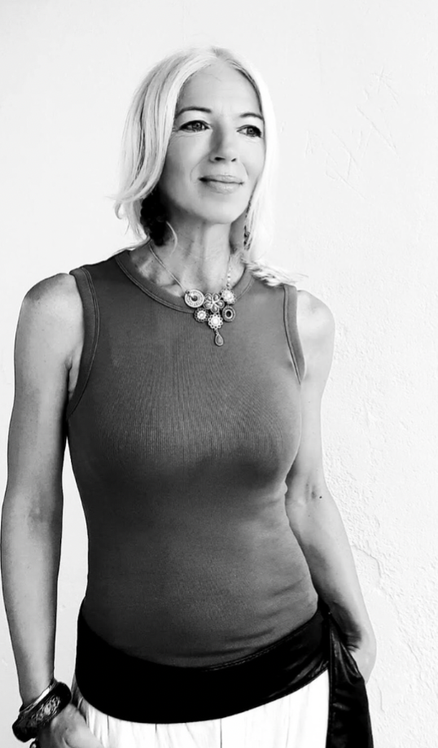When calm feels like a threat
The shadow side of emotional intensity in codependency

You say you long for love. For calm. Stability. Real connection.
But when someone truly shows up, steady, kind, emotionally available, something unexpected happens.
You don’t feel at ease.
You feel unsettled.
Not grounded, but resistant.
Sometimes even irritated. Distant. Or bored.
And then comes the confusion.
Why doesn’t this feel like love?
Why do I miss the one who triggered all my pain?
Why does calm feel… empty?
You’re not crazy. You’re not ungrateful.
But your system has learned something else entirely.
What should feel safe doesn’t feel like home, because your body, your nervous system, was once taught a different kind of compass.
When your nervous system has learned to confuse love with tension, calm doesn’t feel safe.
It feels empty.
Not because it’s wrong, but because it doesn’t remind your system of anything.
If you grew up in an environment where love was inconsistent and unpredictable,
where you had to adapt, please or become invisible in order to survive emotionally,
your system stored a message that runs deeper than words.
Love means being on alert.
Waiting.
Longing.
Attaching to what hurts.
Your body got used to the highs and lows.
To the rush of adrenaline.
To waves of cortisol that kept you sharp and ready.
You became addicted to that state of alertness.
Not because you wanted to, but because it felt familiar.
So when you meet someone calm, steady, emotionally present, someone who doesn’t disappear or manipulate, it doesn’t feel like love.
It feels strange. As if something is missing.
As if your body is waiting for a signal that never comes.
No threat. No test. No tension.
And so… no recognition.
What feels like emptiness is, in truth, the absence of danger.
But as long as your body equates love with intensity,
that absence can feel unfamiliar.
Sometimes even boring.
Your limbic brain remembers love as intensity.
As the chaos of push and pull. Not as calm, but as emotional survival.
As the dance of attachment and loss.
Every intense relationship from your past, no matter how painful, has been imprinted in your system as a blueprint.
And like with any addiction:
the higher the high, the deeper the crash.
You know it wasn’t good for you.
And still, you long for it.
That isn’t love.
That’s limbic craving.
An echo of an old wound, disguised as attraction.
What feels like connection is sometimes nothing more than survival dressed up as love.
Many codependents confuse attachment with connection, but they are not the same.
Real connection grows from safety, calm and reciprocity.
Trauma bonding grows from fear, confusion and the loss of self in relation to the other.
There is an intense pull in trauma bonding that feels like necessity.
You lose yourself in the other.
You live on their approval.
You do everything to avoid being left, even if it means disappearing from yourself.
It may look like love, but it’s the echo of an old wound.
And as long as that wound goes unrecognised, you’ll keep confusing calm for emptiness and drama for passion.
Your body doesn’t seek what’s good for you.
It seeks what’s familiar. If love once meant earning it through adapting, scanning, silencing your needs, then love now only feels real
when it costs you something. When it drains you.
This is why many people with a codependent background are drawn to partners who are emotionally distant, unsafe or unpredictable.
Not because they want to be hurt, but because their system recognises the chaos as love.
That rush you feel is often not chemistry.
It’s an old wound being reactivated.
So when someone offers you presence, calm, emotional availability, your system may resist.
It might label it as emptiness.
As ‘no spark’.
But it’s not that something is missing.
It’s that nothing is threatening.
And when you’ve spent your life in survival, the absence of threat can feel unfamiliar.
True love doesn’t ask you to fight. It asks for space.
For the courage to soften into calm.
To get used to steadiness.
To simply be.
It invites a new kind of feeling, not the ache of losing yourself, but the quiet return to who you’ve always been.
And that takes work. Inner work.
It asks you to recognise your patterns without judgement. You’re not emotionally broken.You were conditioned.
It asks you to come back into your body.
To regulate your nervous system.
To learn how to stay with what once felt unsafe:
Stillness.
Closeness.
Predictability.
It asks you to rewrite what you believe about love. You don’t have to prove yourself. You don’t have to earn it.
Love can be quiet.
It can be soft.
It can be safe.
And it asks that you stop repeating the past, not by avoiding it, but by daring to feel what once felt unbearable.
So that the pull toward what hurts can finally fade, not because you suppress it, but because you’ve learned to hold what was never held.
If calm repels you, it’s not a sign that something is wrong. It’s an invitation to heal.
Because what your system now resists, is often exactly what you once needed most:
Safety, without conditions.
Real love isn’t always a wildfire.
Sometimes it’s a still, quiet lake and for the first time, you get to exhale.
And yes, that might feel unfamiliar.
But that’s exactly where healing begins.
Do you recognise this pattern, that calm feels more like emptiness than love?
You’re not alone. What your system now rejects is often exactly what you once needed most:
Safety, without conditions.
Want to understand more about how love, triggers and old pain are deeply connected?
You might also want to read:
The mirror that breaks you, and sets you free
A blog about how relationships reveal exactly where you’re not yet free.
Curious where you stand?
Take the free self-assessment:
A first step towards clarity and real connection with yourself.